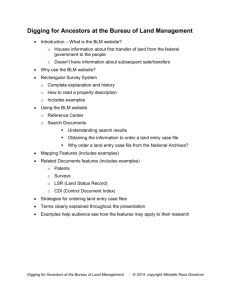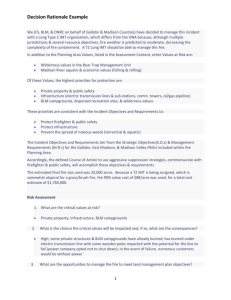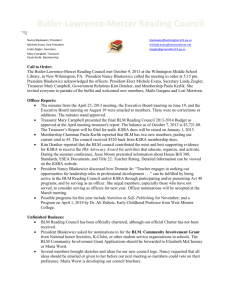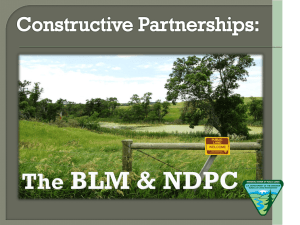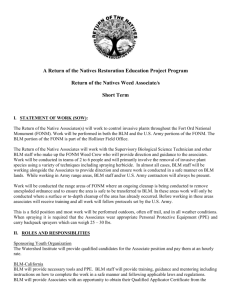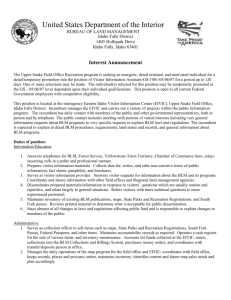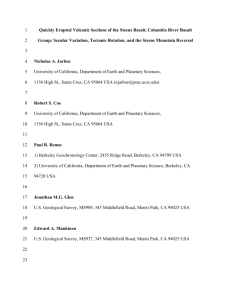Fence fight on Steens Mountain
advertisement
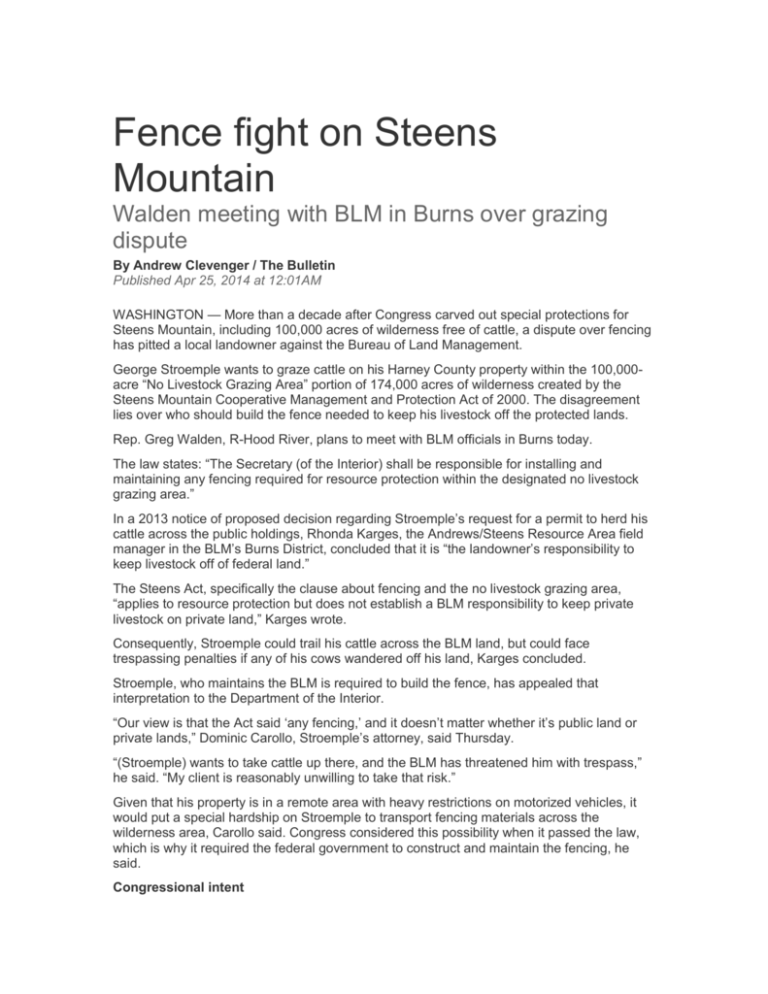
Fence fight on Steens Mountain Walden meeting with BLM in Burns over grazing dispute By Andrew Clevenger / The Bulletin Published Apr 25, 2014 at 12:01AM WASHINGTON — More than a decade after Congress carved out special protections for Steens Mountain, including 100,000 acres of wilderness free of cattle, a dispute over fencing has pitted a local landowner against the Bureau of Land Management. George Stroemple wants to graze cattle on his Harney County property within the 100,000acre “No Livestock Grazing Area” portion of 174,000 acres of wilderness created by the Steens Mountain Cooperative Management and Protection Act of 2000. The disagreement lies over who should build the fence needed to keep his livestock off the protected lands. Rep. Greg Walden, R-Hood River, plans to meet with BLM officials in Burns today. The law states: “The Secretary (of the Interior) shall be responsible for installing and maintaining any fencing required for resource protection within the designated no livestock grazing area.” In a 2013 notice of proposed decision regarding Stroemple’s request for a permit to herd his cattle across the public holdings, Rhonda Karges, the Andrews/Steens Resource Area field manager in the BLM’s Burns District, concluded that it is “the landowner’s responsibility to keep livestock off of federal land.” The Steens Act, specifically the clause about fencing and the no livestock grazing area, “applies to resource protection but does not establish a BLM responsibility to keep private livestock on private land,” Karges wrote. Consequently, Stroemple could trail his cattle across the BLM land, but could face trespassing penalties if any of his cows wandered off his land, Karges concluded. Stroemple, who maintains the BLM is required to build the fence, has appealed that interpretation to the Department of the Interior. “Our view is that the Act said ‘any fencing,’ and it doesn’t matter whether it’s public land or private lands,” Dominic Carollo, Stroemple’s attorney, said Thursday. “(Stroemple) wants to take cattle up there, and the BLM has threatened him with trespass,” he said. “My client is reasonably unwilling to take that risk.” Given that his property is in a remote area with heavy restrictions on motorized vehicles, it would put a special hardship on Stroemple to transport fencing materials across the wilderness area, Carollo said. Congress considered this possibility when it passed the law, which is why it required the federal government to construct and maintain the fencing, he said. Congressional intent In the waning months of the Clinton presidency, the administration considered designating Steens Mountain as a national monument. In response, Walden, then in his first term in Congress, pulled together local and federal stakeholders to craft a solution that would allow ranchers to keep their livelihood and way of life while providing additional environmental protections to particularly pristine areas. With the support of Oregon’s entire delegation, as well as that of Gov. John Kitzhaber, Walden worked out a deal in which portions of Steens Mountain were designated as wilderness, including four rivers designated as wild and scenic. It also protected property and water rights of local landowners. “The intent was pretty clear that the government had the responsibility to do the fencing (related to the no livestock grazing area), not the ranchers. That was part of the deal,” Walden said Thursday, on the eve of his meeting with BLM officials. Walden said he feels particularly qualified to say what Congress intended. “Seldom would I say, ‘I wrote this law.’ I wrote this law,” he said. Others were involved and provided important input, but he drove the law’s formulation and passage, he said. “I know what we intended, I know what we wrote, and I know what we fully envisioned,” Walden said. Walden said he is frustrated with BLM’s efforts to circumvent Congress’ intent. “It’s not the first time I’ve tried to educate the BLM folk on what was the intent of the law and what wasn’t, because they continue to try to interpret it their way, and that’s not the way the agreements were made,” he said. “You get these people in this agency that think it’s their land and the government’s land and not the public’s land, and they don’t respect the intent of Congress. … Now they have some high-priced lawyers running around, trying to interpret nuances to get to a result that they want. And I’ll be darned if I’m going to let them do that.” Reached on Thursday, BLM’s Karges said she couldn’t discuss the particulars of the case because it is in litigation. Her written decision articulates the rationale behind the BLM’s position, she said. The BLM’s actions are eroding local trust in the way the government operates, Walden said. “That’s really hurtful to a lot of relationships,” he said. “When you feel betrayed, it’s hard to have confidence in anything going forward.” — Reporter: 202-662-7456 202-662-7456, aclevenger@bendbulletin.com
